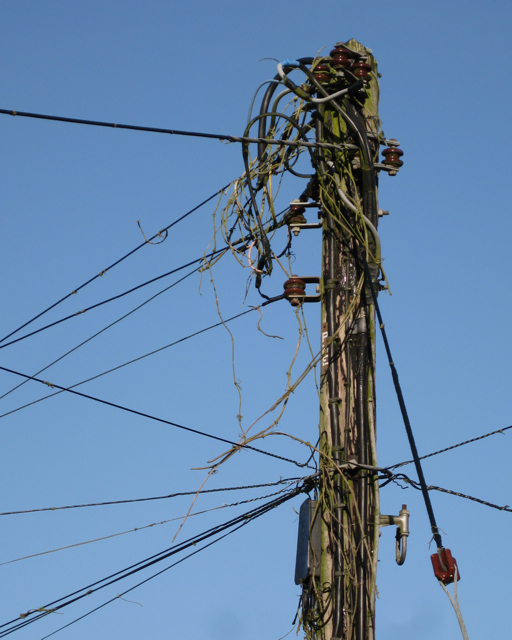Stephen Hardy

English: Telephone pole, Westwood (Photo credit: Wikipedia)
AT&T has filed suit in federal court alleging that officials in Louisville, KY, overstepped their authority in giving access to AT&T-owned telephone poles to Google Fiber and potentially other competitors, reports the local Courier-Journal.
As one of the communities Google Fiber has selected for potential provision of its gigabit fiber to the home (FTTH) services (see “Google Fiber sets FTTH sights on three new cities”), Louisville officials had passed unanimously a “One Touch Make Ready” ordinance that would enable Google Fiber and other broadband services providers in the future to access city utility poles and attach the necessary hardware to provide services themselves. AT&T owns between 25% and 40% of those poles, the Courier-Journal reports, and the ordinance potentially would allow its competitors to move AT&T’s equipment on the pole to make room for the new infrastructure.
The lawsuit asserts that the authority to regulate pole access resides only with the Kentucky Public Service Commission and the Federal Communications Commission, and therefore the city exceeded its authority in creating and passing the ordinance. Incumbent cable operator Time Warner Cable also filed objections to the provision while the city’s Metro Council considered the ordinance, but has not as of yet joined the lawsuit.
An AT&T spokesman the Courier-Journal interviewed said that the lawsuit was not intended to prevent Google Fiber or other competitors from offering service in Louisville; incoming operators could license access to the poles AT&T owns, the spokesman explained. Instead, the lawsuit was about the city overstepping its authority, he asserted.

About Mark Milliman
Mark Milliman is a Principal Consultant at Inphotonics Research driving the adoption and assisting local governments to plan, build, operate, and lease access open-access municipal broadband networks. Additionally, he works with entrepreneurs and venture capitalists to increase the value of their intellectual capital through the creation of strategic product plans and execution of innovative marketing strategies. With more than 22 years of experience in the telecommunications industry that began at AT&T Bell Laboratories, Mark has built fiber, cable, and wireless networks around the world to deliver voice, video, and data services. His thorough knowledge of all aspects of service delivery from content creation to the design, operation, and management of the network is utilized by carriers and equipment manufacturers. Mark conceived and developed one of the industry's first multi-service provisioning platform and is multiple patent holder. He is active in the IEEE as a senior member. Mark received his B.S. in Electrical Engineering from Iowa State University and M.S. in Electrical Engineering from Carnegie Mellon University.









AT&T throwing up as many road blocks as they can before Google forces them to stop cheating the customer.
AT&T has a valid case because they do own the poles. The city has to open up the right of ways legally and AT&T has to be fairly compensated by their competitors. On the other hand, AT&T can’t ask for or charge exorbitant rates for pole attachments. This has all been done before and AT&T is certainly use to unbundling. Their behavior is expected but eventually Google and others will be allowed pole attachments on AT&T and city poles.